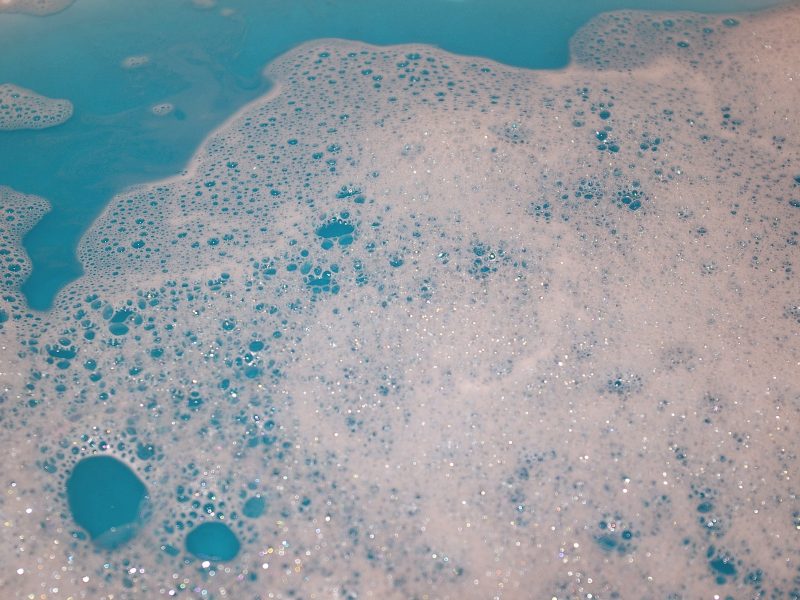How Defoamers Help Improve Performance in Coatings and Paints
How Defoamers Help Improve Performance in Coatings and Paints
Blog Article
The Duty of Defoamers in Enhancing Product Quality and Efficiency
Defoamers offer as essential additives that minimize this issue, making sure smoother production workflows while improving the functional and visual features of the final products. The option of the ideal defoamer can be crucial to accomplishing optimum outcomes, raising essential concerns regarding formula compatibility and efficiency metrics that warrant further exploration.
Understanding Defoamers
Comprehending the duty of defoamers is vital for keeping product high quality across different sectors. Defoamers are chemical additives made to decrease and protect against the development of foam in liquid systems, which can adversely impact processes such as mixing, filling, and surface area stress. Lathering can result in ineffectiveness, product defects, and compromised visual allure, making defoamers a crucial component in making procedures.
In commercial applications, defoamers assist to enhance item uniformity and stability. In the paint and finishings market, foam can interfere with the application process and the last surface. Similarly, in food and beverage manufacturing, too much foam can impede bottling and packaging efficiency (defoamers). The effective usage of defoamers not only makes certain smoother manufacturing processes however also adds to exceptional item efficiency.
Additionally, the choice and formulation of a defoamer should align with particular application needs, such as compatibility with various other components, effectiveness under varying temperature level and pH conditions, and prospective regulative restraints. Inevitably, understanding defoamers' features and their relevance in numerous solutions is critical for maximizing production and guaranteeing the best output.
Types of Defoamers
Defoamers can be classified right into several types based upon their structure and mechanism of action. The primary kinds consist of silicone-based, non-silicone organic, and inorganic defoamers.
Silicone-based defoamers are among the most efficient, primarily as a result of their ability to spread quickly on the fluid surface area and interfere with foam formation. Their unique chemical framework permits premium stability, making them appropriate for high-temperature applications and atmospheres with differing pH levels.
Non-silicone natural defoamers, often made up of fatty acids or natural oils, are valued for their biodegradability and reduced poisoning. These are typically made use of in food and drink applications where safety and security and environmental influence are extremely important.
Not natural defoamers, which include substances like talc or calcium carbonate, act by boosting the density of the liquid, consequently decreasing foam stability. They are frequently made use of in industrial processes where compatibility with other products is not a problem.
Each kind of defoamer has distinctive benefits and restrictions, enabling tailored options relying on the specific frothing issues experienced in numerous applications. Recognizing these distinctions is critical for maximizing performance and achieving preferred product quality.
Applications Across Industries
Many industries take advantage of defoamers to boost product top quality and functional effectiveness. In the food and beverage field, defoamers are vital in processes such as brewing and dairy products manufacturing to protect against foam development, which can cause inefficiencies and item variance. By managing foam, manufacturers can make sure better return and an extra consistent product.
In the pharmaceutical industry, defoamers play an important function in the official website formula of liquid medicines, where excessive foam can impede blending and precise application. Their usage aids maintain the honesty of the solutions and assists in smoother production processes.
The paint and finishings industry additionally depends on defoamers to boost the performance of products during application. By minimizing foam, these ingredients ensure a smoother surface and improve the visual high qualities of the final product.

Benefits of Using Defoamers
While the application of defoamers varies throughout sectors, their advantages constantly improve product high quality and process efficiency. One significant benefit is the decrease of foam development during manufacturing processes, which can or else bring about manufacturing hold-ups and inconsistencies in product quality. By reducing foam, defoamers allow a smoother circulation of products, promoting extra efficient procedures and decreasing the probability of devices malfunctions.
Additionally, the use of defoamers can enhance the appearance and structure of end products. In industries such as finishings, paints, and food handling, extreme foam can endanger the visual aesthetic appeals and overall top quality, while visit their website the proper defoamer application makes sure an uniform coating and desirable characteristics. In addition, defoamers can add to set you back savings by lowering waste during manufacturing and maximizing using raw materials (defoamers).

Picking the Right Defoamer
Picking the appropriate defoamer is crucial for maximizing manufacturing procedures and making sure item high quality. The option of defoamer influences not only the effectiveness of foam control yet additionally the total efficiency attributes of the end product. Elements to consider include the kind of application, the chemistry of the solution, and the ecological problems under which the item will certainly be made use of.
Various markets might call for details defoamer kinds, such as silicone-based, natural, or polymeric defoamers. Understanding the compatibility of the defoamer with the key ingredients is necessary to prevent damaging responses that can endanger product integrity. Additionally, the defoamer's performance in numerous temperature levels and pH degrees need to be examined to guarantee consistent efficiency.
Examining the defoamer in small-scale applications can give important understandings into its performance and viability. Consideration of regulative conformity, especially in food, drugs, and cosmetics, is paramount in choosing a defoamer. Inevitably, an extensive analysis of these elements will certainly bring about the selection of a defoamer that not just regulates foam effectively however additionally enhances the high quality and efficiency of the end product.
Final Thought

In final thought, defoamers are necessary ingredients that significantly improve product high quality and efficiency throughout numerous industries. By effectively minimizing foam pop over to these guys development, these representatives not just enhance operational effectiveness however additionally contribute to the aesthetic and practical honesty of items. The critical option and application of defoamers lead to cost savings, optimized resource use, and increased customer complete satisfaction. Generally, the relevance of defoamers in commercial procedures can not be overemphasized, as they play a crucial function in accomplishing constant and top notch results.
Foaming can lead to inadequacies, product problems, and jeopardized visual appeal, making defoamers a critical part in producing procedures.

Report this page